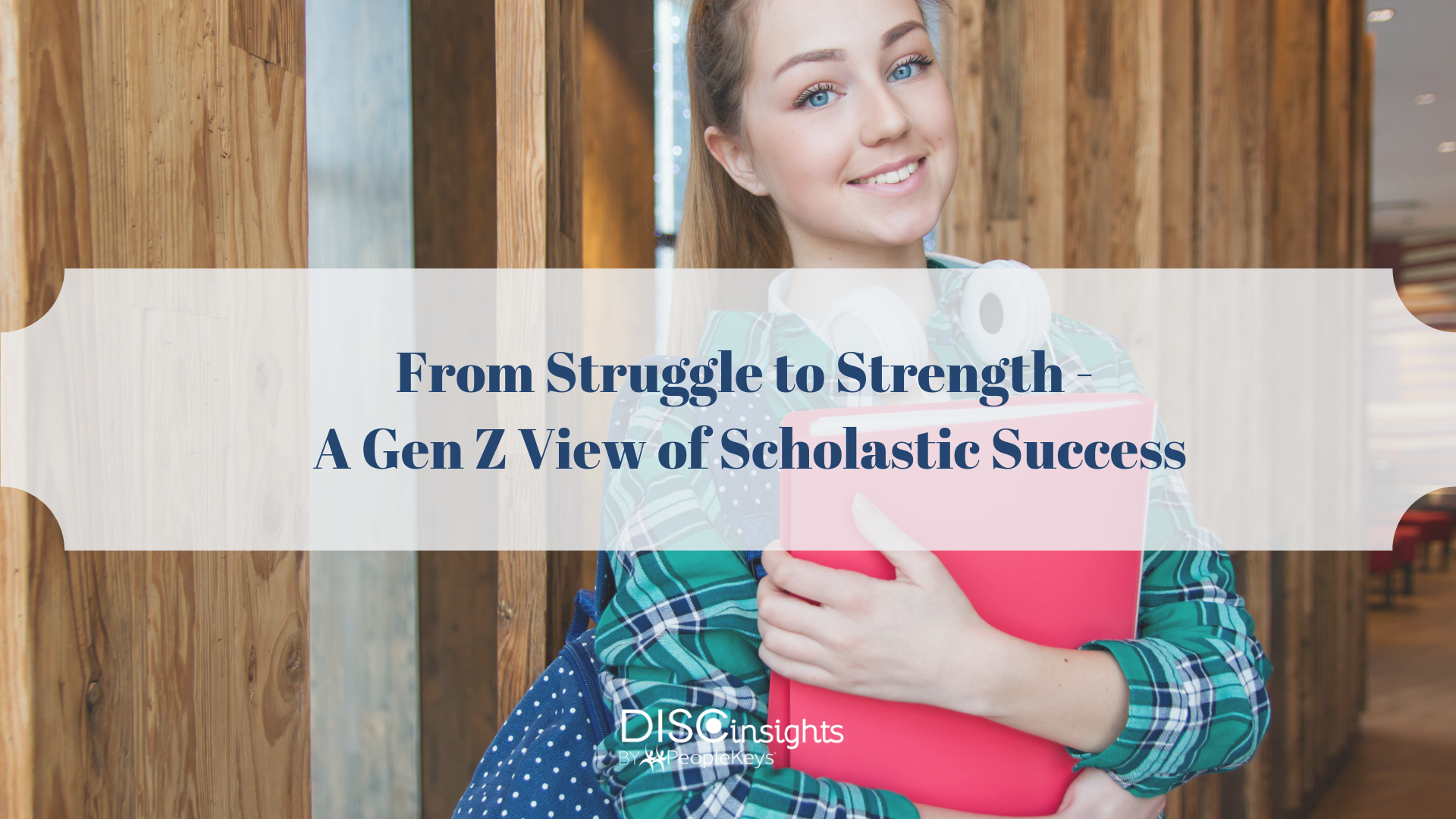- SHOP BY PRODUCT
- DISC TRAINING & CERTIFICATION TOOLS
- DISC RESOURCES
- BLOG
- SHOP BY PRODUCT
- DISC TRAINING & CERTIFICATION TOOLS
- DISC RESOURCES
- BLOG
- ALL ITEMS



It appears the main issue for students in my Generation Z is that we don't understand the best way we can learn, and neither do our parents and teachers. School systems are made uniform so every student is presented with class materials the same exact way, takes a test the same exact way, and so on. While on the surface this promotes equality, every student has a unique personality and they do not learn or think the same. If more school systems were to incorporate DISC theory into the classroom, students would have a clearer picture of who they are, how they learn best and how to develop themselves. For example, many students struggle taking tests, others have a hard time focusing, and for others, knowing even how or what to study can be difficult. Self-awareness and a customized classroom would improve the well-being and grades of students because they are working in ways that best suits their needs and natural strengths.
A way to resolve this issue is by incorporating soft-skills assessment tools in the classroom, such as PeopleKeys’ Scholastic Success Report. Based on DISC theory establishing four personality types: D, I, S, and C, this report would help students discover and figure themselves out, as well as parents and teachers to understand their students’ needs. There are different types of other behavioral assessments that can also be implemented to help students become better versions of themselves, such as StudentKeys Thinking and Learning style assessments. For example, the Scholastic Success assessment by PeopleKeys, may help teachers and parents align with their student’s natural learning environment.
Finding yourself is one of the biggest struggles of most high school students. Teenagers struggle to find who they are as a person, their passions, and deciding on their future. I am one of those struggling students. After taking the Scholastic Success assessment, I have a more vivid idea of my strengths and what I am capable of, as well as what I need to improve upon (my limitations). Students have a hard time finding themselves, and parents also have just as hard of a time understanding their own children. The Scholastic Success Report offers three reports: a personal report, a parental report, and a report for a teacher or tutor. These reports offer ways to help communicate with your child according to their personality type, how to help them grow, motivate them, and more. This gives the opportunity for students to grow as people, and with their families and teachers by their side, simply by providing a better understanding of the needs of the student.
When I first started high school, I felt completely overwhelmed. I always kept my future in mind, but I never really needed to consider my options or goals until I started my freshman year. This brought out my worst struggles. I procrastinated on my assignments and didn’t really understand my potential and strengths. After learning about my own unique DISC language, strengths and weaknesses, I have a clearer picture of who I am as a person and as a high school student. I even established a better relationship with my mom. We now understand each other a little better, and she is capable of helping me with my school work because she also now understands the way I learn best.
The teacher report also significantly helps the student-teacher relationship. Teachers know that every one of their students learns differently. Incorporating DISC can allow teachers and tutors to understand the way their students prefer to do homework, learn, and study best. It will give teachers the chance to apply different teaching styles to their classes that best fit the natural strengths of all their students. I’ve also made better connections with my teachers, as I was struggling in their classes, by providing them with insight into what works best for me.
Not all people are self-aware or understand their weaknesses as a person. Knowing which areas you struggle most with can help you make adjustments and improve as-needed. Adolescence is a time of not only physical, but most importantly, emotional growth. You can't improve as a person if you're unaware of who you are. DISC allows us to find these areas and improve them. As a “C” personality style, I realized I do not take criticism well. This knowledge has opened my eyes to consider possible changes and areas to work on. For example, I’m learning to consider others’ opinions and criticism, choosing to not take them personally and become offended, but instead learn from them and make changes when needed.
School, overall, is a bumpy road for students, parents and teachers. If the biggest struggle is a lack of communication and understanding of ourselves and others, why not give DISC a chance? I now apply DISC to my everyday life and see significant results. DISC theory is something we need to adopt in the education system so that we can overall improve individually and as a society.

© PeopleKeys. All Rights Reserved
WORKING DAYS/HOURS
Mon - Fri / 8:30AM - 5:00PM EST
